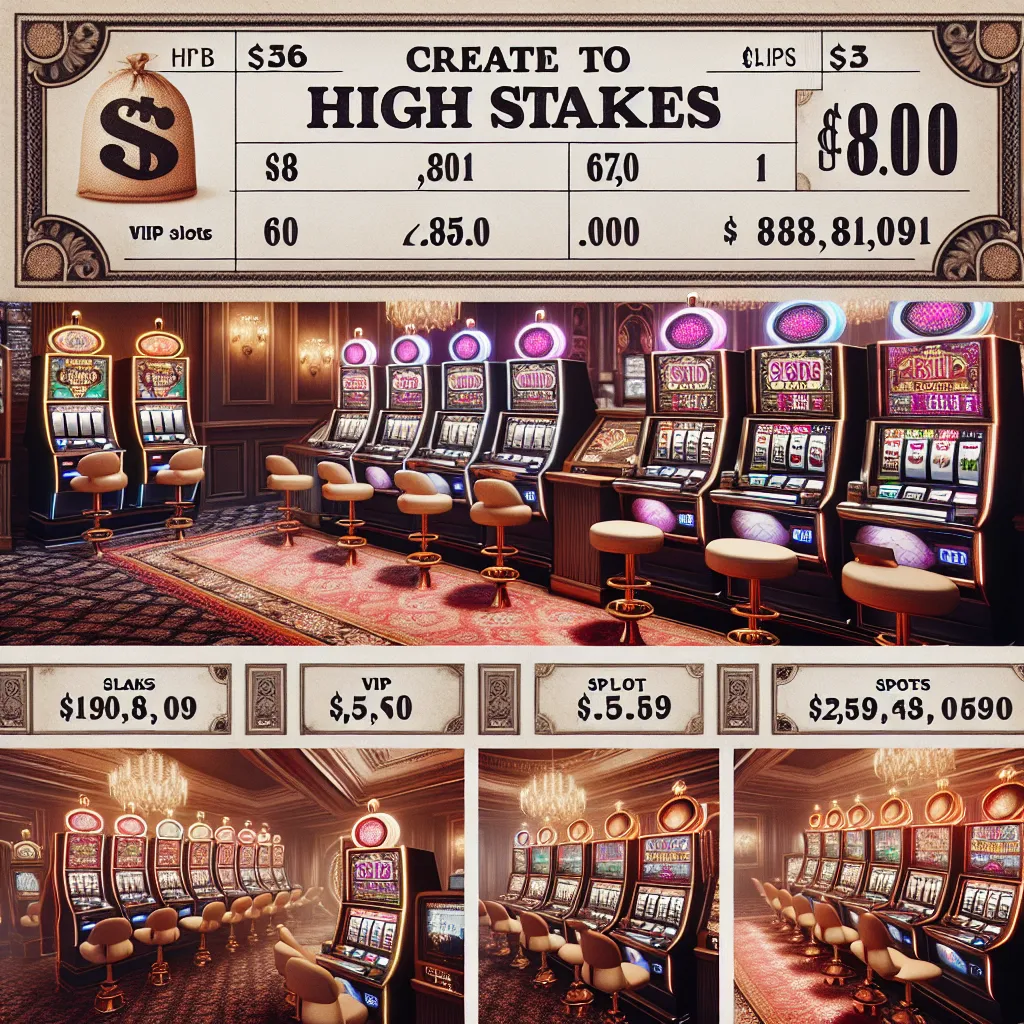Slot machines are a staple of the casino industry, forming a significant portion of gambling entertainment worldwide. The excitement and allure of these machines attract countless players, making them a lucrative venture for casinos. However, not all slot machines are created equal. Among them, VIP slots hold a distinct appeal, offering exclusivity and higher stakes for a select clientele. This article explores the costs associated with acquiring slot machines, delving into how much casinos typically invest in these gaming assets, with a special emphasis on the premium niche of VIP slots.
VIP slots symbolize luxury and exclusivity in the realm of online and physical casinos. Designed to cater to high rollers, these machines often feature elaborate themes, cutting-edge technology, and enhanced gameplay mechanics. They promise more than just the chance to win big; they offer an elevated gaming experience with a rich, immersive environment that appeals to discerning players. These slots not only drive significant revenue but also enhance a casino’s prestige and draw a more affluent customer base.
Developing a slot machine is a complex endeavor involving significant costs. The journey begins with conceptual design, where ideas are transformed into playable formats by teams of game designers and software developers. The development cost for a traditional slot machine ranges from $10,000 to $25,000. This price can rise significantly for VIP slots due to additional features like high-definition graphics, interactive bonus games, and licensed themes from popular media franchises. Each additional layer of complexity and branded content increases the cost exponentially.
Casinos face important decisions when equipping their gaming floors with slot machines, balancing cost with potential return on investment. When it comes to acquiring slot machines, casinos have the option to either purchase them outright or enter into leasing agreements. The cost to buy a new slot machine generally falls between $15,000 and $30,000. However, this range can extend much higher for specialty machines packed with advanced technologies or licensed content—VIP slots being prime examples of such luxury purchases that can reach upwards of $100,000.
Leasing slot machines is an attractive alternative for many casinos, offering financial flexibility and the ability to frequently update game offerings without significant capital commitment. Leasing arrangements can cost a few hundred to several thousand dollars per month per machine, depending on the machine’s complexity and popularity. This option allows casinos to retain fresh and dynamic gaming floors, responding swiftly to changing player preferences and the latest gaming trends.
The financial considerations for casinos do not end with the cost of acquisition. The ongoing maintenance, updates, and operational logistics of running a gaming floor must also be accounted for, ensuring the slot machines remain in peak condition and free of technical hitches. Advanced machines, such as VIP slots, often come with comprehensive support agreements as part of purchase or lease deals, alleviating some of the operational burdens from the casino staff.
Slot machines, particularly VIP slots, are significant revenue generators. A well-positioned machine in a busy casino can bring in $50 to $300 per day. VIP slots often exceed this average due to their higher stakes, exclusive features, and the financial capability of the players they attract. These machines not only contribute to the daily cash flow but also enhance the casino’s status as a premier gaming venue, enticing a wealthier clientele who are willing to spend more on entertainment.
The strategic inclusion of VIP slots within a casino’s gaming portfolio demonstrates a commitment to offering a diverse and appealing gaming experience. By understanding player demographics and preferences, casinos choose machines that will not only maximize economic returns but also solidify their brand position as a destination of choice for high-stakes and luxury gaming.
In conclusion, the acquisition and operation of slot machines, particularly in the premium sector occupied by VIP slots, represent a significant investment for casinos. Both the purchase and leasing strategies come with their respective benefits and financial implications, balancing initial costs with long-term revenue potential. As gaming technologies continue to advance, the dynamics of slot machine costs and investments will undoubtedly evolve, offering even more tailored experiences for players and opportunities for casinos to thrive.




